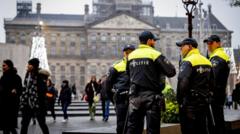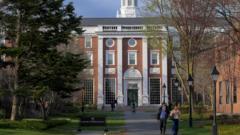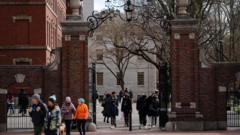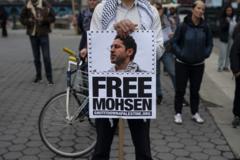The aftermath of violence following an Israeli football match in Amsterdam has exposed tensions within the city’s Jewish and Muslim communities, with implications for the broader political landscape in the Netherlands. Community leaders urge for understanding and de-escalation as citizens confront the ripple effects of the unrest.
Amsterdam's Unrest Reveals Deep-Rooted Community Fractures Amidst Crisis

Amsterdam's Unrest Reveals Deep-Rooted Community Fractures Amidst Crisis
The recent violence in Amsterdam sparked by an Israeli football match illuminates the fragile dynamics between Jewish and Muslim communities, raising concerns over rising tensions and political divides in the Netherlands.
In the heart of Amsterdam, a fragile calm envelops the city following violent clashes that erupted during a week marked by tension and unrest. The disturbances, triggered when Israeli football supporters faced aggression in the city’s center, have stirred deep anxieties among both the Jewish and Muslim populations.
City officials characterized the violence—seen as a "toxic blend of antisemitism, hooliganism, and collective ire over ongoing conflicts in Gaza and other regions"—as a troubling sign of social strain. With fervent civic unrest still palpable, the broader implications for community cohesion are evident as fears over Jewish-Muslim relations mount.
The discord has also reverberated throughout the Netherlands' political sphere. In a significant move, a Moroccan-born junior minister resigned amid accusations regarding the inflammatory rhetoric espoused by colleagues within the coalition government. This resignation underscores the precarious nature of the government, already vulnerable due to existing fractures.
Local Rabbi Lody van de Kamp likened the situation to a tinderbox, stressing the inherent risks of a large gathering of Israeli football supporters in a politically charged environment. The violence found its roots in pre-existing sentiments stemming from the ongoing Middle East conflict, as noted by well-known Muslim columnist Emine Uğur. With her perspective highlighting ignored grievances, Uğur expressed concern about how communities struggle to channel their collective pain and frustrations in a constructive manner.
Incidents of flag burning and aggressive provocations marked a turning point that incited retaliatory calls on social media, capturing a climate fueled by hostility. The mob mentality manifested through rapid, violent actions targeting both Israeli fans and nightlife goers, perplexing police who struggled to maintain order.
Amidst escalating tensions, the mayor of Amsterdam, Femke Halsema, expressed alarm, echoing fears reminiscent of historical discrimination against Jews. Coinciding with the anniversary of the Kristallnacht pogrom, the violent eruption against the backdrop of such somber history heightened anxieties among Amsterdam's Jewish denizens.
In a bid to counter rising antisemitism, the Dutch government has allocated substantial funding for relief efforts aimed at supporting victims and promoting safety within Jewish communities. However, Chanan Hertzberger, chairman of the Central Jewish Committee, cautioned that mere financial support may not suffice to counter pervasive, unchecked antisemitic sentiment since October.
Political rhetoric has intensified further as some factions target the Moroccan community, with right-wing voices calling for the deportation of individuals showing such intolerance. This narrative, however, faced criticism, as members of the Moroccan community argued that such portrayals limit their identity and history in the Netherlands. One commentator voiced concerns over collective blame, suggesting it merely exacerbates divisions.
As a testament to rising fears, several Jewish families have taken precautions for their safety—many opting to remove or cover religious symbols on their homes. Concurrently, Muslims within the community fear heightened scrutiny and blame for the actions of a few.
Calls for healing between ethnic groups have emerged, with academics warning against equating current events to historical atrocities. With disturbances casting shadows over the identity of Amsterdam as a diverse and tolerant city, community leaders are advocating a path toward reconciliation and respect as they confront the wounds inflicted by recent turmoil. Rabbi van de Kamp poignantly reflected on the need for patience in anger, asserting, "We are allowed to be very angry, but we must never hate."




















